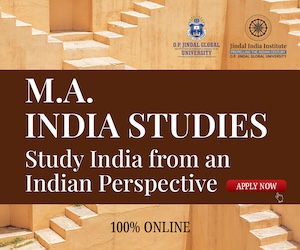Religion in the EU : How Many Divisions ?
Sociologists present Europe as “an exceptional case” to the extent that religious beliefs and practices have declined there more than in any other part of the world. It does not mean that religion is disappearing. On the contrary, it is becoming more visible in the political and public arenas, in new, individualised and pluralised forms that are less linked to traditional churches.
Development and Communities: A View from Cambodia’s Buddhist Temples
It would be hard to imagine a more complex array of development challenges than those facing Cambodia. During the brutal civil war and genocide of the 1970s, the lives and institutions of Cambodia were shattered and perhaps two million people died at the hands of the murderous Khmer Rouge regime.
The Politics of UN Human Rights Council and Iran’s Candidacy
The candidacy of Iran for the UN Human Rights Council is comparable to electing apartheid South Africa to the United Nations Committee on the Elimination of Racial Discrimination or to awarding the US for humane treatment of detainee’s right after the world was shocked with pictures revealing sexual torture and humiliation of naked prisoners.
Religion and International Affairs: From Neglect to Over-Emphasis
Religion, in the past, had influenced the behavior of international actors without determining it, although its role often went unnoticed. This situation, notwithstanding the new found fascination with the impact of religion on international affairs, has not changed. Religion is neither the source of conflicts and disputes nor a panacea for global problems.
Walking Corpses
Hannah Arendt’s name has emerged at the forefront of contemporary writing on the possibility of cosmopolitan political forms. The central political issue, for Arendt, was one of appropriate foundation, that is, ‘the setting of a new beginning’ and of ‘lawgiving’. One could read Arendt’s entire theory of politics as an effort to work out the possibility of non-violent, non-imperial, non-ideological political founding.
Science Diplomacy at the heart of international relations
Science should ideally provide the basis of non-ideological environments for the participation and free exchange of ideas. However, science has been, and will continue to be, used for political gain with the express aim of furthering a particular ideology and proving its superiority. Despite the negatives, science diplomacy has been effective for many years and led to coalition building and conflict resolution.
Understanding Religion-Inspired Conflict and Peace
Religious dynamics (e.g. actors, worldviews, and cultures) infused numerous conflagrations in the 1990s including Bosnia, Rwanda, Afghanistan, and Sudan. Without giving credence to the notion that religion is the “problem” causing all today’s conflicts, how best can we understand the role that religious dynamics play in contemporary war and peace?
Beyond Secularism
Secularism has long been the language of most public servants and many scholars in the Western world, enabling both groups to work and live as though religions were irrelevant to their respective fields. This perspective has meant that religious phenomena have been ignored or reduced to other categories such as civil society, humanitarianism or as part of a definition of “civilization.”
The Thorny Triangle: Cyber Conflict, Business and the Sino-American relationship in the Global System
The China-Google cyberconflict adds to the debate on the position of China in the world system, & creates insecurities about the ambitions, capabilities and hidden desires of the ‘next hegemon’. It brings together in one discussion a complex matrix of debates: global politics and world-system theorizing, global political economy and many more.
Capitalism and the Useful Nation State
Not so long ago, it was fashionable among apologists and many other commentators on contemporary capitalism to refer to the nation state as passé. Globalization of large corporations was enshrined as a mechanism enhancing efficiency far beyond what could be achieved within national boundaries. Not surprisingly these rosy assessments of capitalism’s prospects glossed over the problem of its inherent instability.










